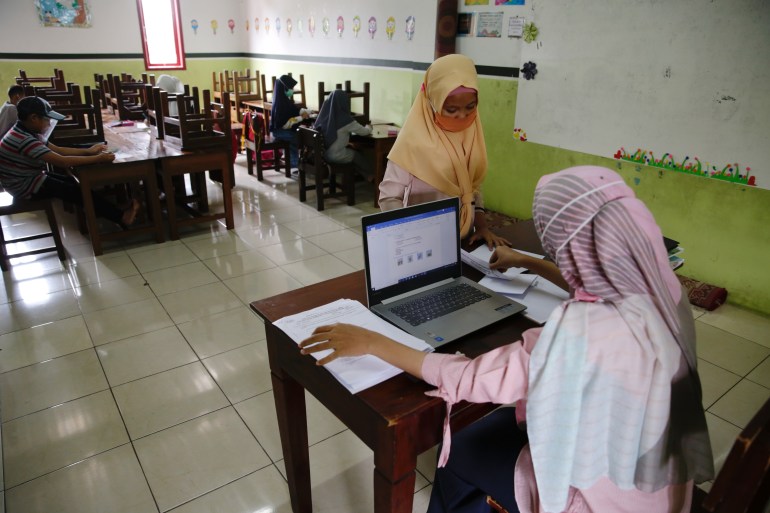Indonesia: Lessons from the online classroom
The COVID-19 pandemic has exposed the world’s deep inequalities – nowhere more than in education.
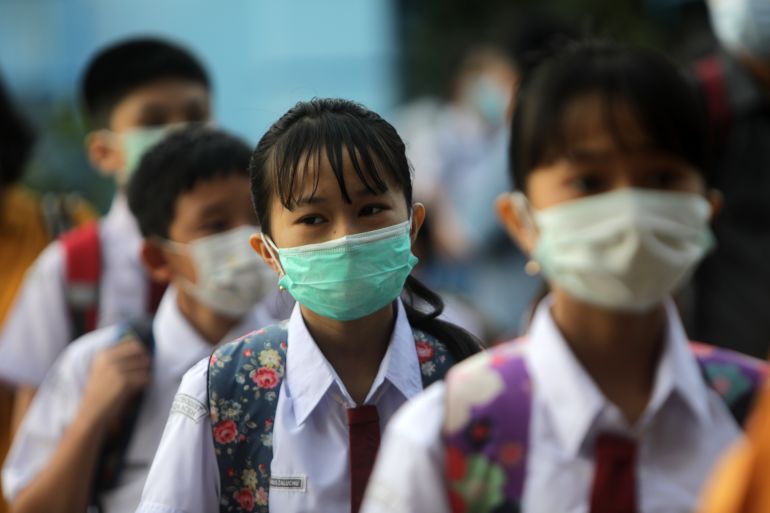
Jakarta, Indonesia – The coronavirus pandemic has forced hundreds of millions of children across the world to either adopt learning from home or drop out of school altogether, as the disease exacerbates sharp divides between the rich and poor.
In Indonesia, the lives of some 68 million young people – from pre-schoolers to higher education students – have been affected by COVID-19 over the last year, according to the Jakarta office of UNICEF.
Keep reading
list of 4 itemsYoung people first: Indonesia’s COVID vaccine strategy questioned
Indonesia aims for halal ruling before COVID vaccine roll out
Vaccine hesitancy rises in Indonesia amid COVID-19 pandemic
Many Indonesians have found it difficult to participate in online learning due to unequal access to technology and Internet connectivity.
Jakarta-based newspaper journalist Agnes Theodora, 29, who together with 12 other reporters, has given more than 400 used smartphones and data packages from donors to hundreds of underprivileged families in Indonesia, found there was “an extraordinary digital inequality and divide” when the group began distributing mobile phones to students across the world’s largest archipelago in August last year.
“Many of them have to borrow their friend’s smartphone or borrow a neighbour’s smartphone, or even some of them cannot go to school at all because they do not have any gadget and have to visit the teacher in person [for face-to-face classes],” she told Al Jazeera.
“The problem is not only the difficulty in accessing a smartphone and buying the Internet quota, but the signal does not reach [some parts of Indonesia],” she added.
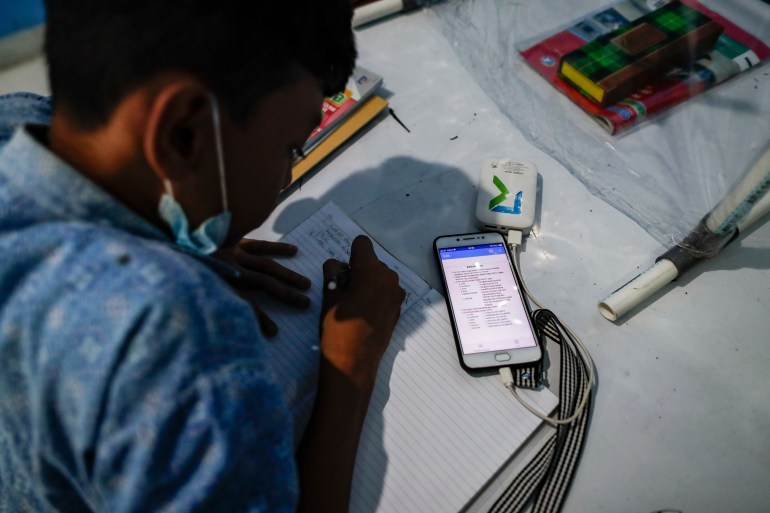
Even with the pandemic showing no signs of abating – Indonesia had more than 1,089,000 cases and more than 30,200 fatalities as of Monday – the government has now decided that schools can reopen – at least in some areas if local officials agree.
“It is important to note that since 2021 began, Indonesia’s status has changed to partially open, and Ministry of Education and Culture left the decisions regarding school reopening to local governments,” the UNICEF office in Jakarta said in an emailed statement.
Al Jazeera spoke to students and teachers in public and private schools in Indonesia to find out more about their online learning experiences over the past year.
Silma Aulia, 17
Silma Aulia is a junior high school student at a public school in Bandung, the provincial capital of West Java. She does not want her institution to be identified. Her father is doing odd jobs to support the family while her mother looks after the house.
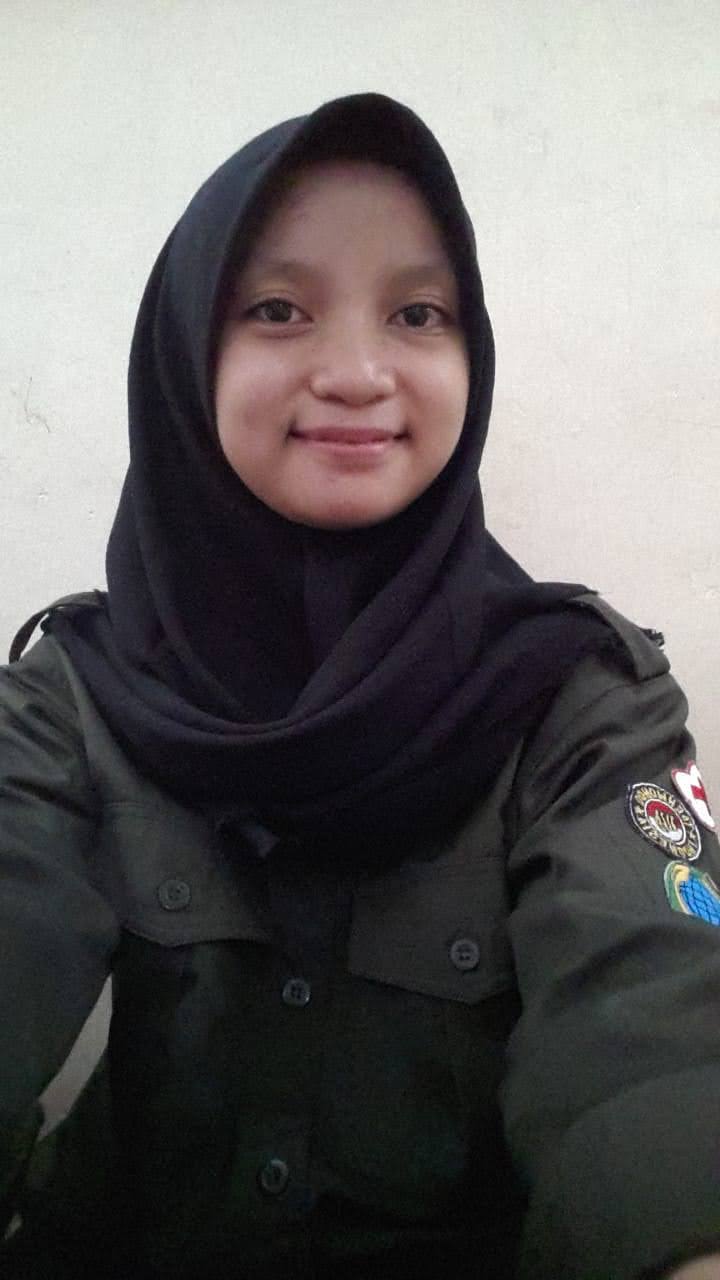
She found out about Theodora’s campaign through a TV news bulletin.
Aulia later contacted the reporter and qualified for a smartphone which she shares with her younger sister. Previously she had to share an Android mobile phone with her parents and three siblings.
The second of four children, the 17-year-old says she often struggles to understand the materials because some teachers only assigned homework while others expected students to use YouTube as a learning tool.
Aulia says she found it harder to grasp new concepts as she could only chat with the teachers online as opposed to interacting with them in person.
Aulia, who wants to become a journalist, says while she has become used to online learning, she is ready to attend in-person classes this year and is certain her school has implemented the necessary health protocols to keep its students safe.
But that could be some time yet. While there were plans to reopen schools in West Java province initially, the worsening pandemic has prompted the authorities to shelve the plan.
“At least there is interaction [at school], so you do not get too bored [like] at home,” she told Al Jazeera.
Lerma Atienza, 37
Lerma Atienza, a teacher at Singapore Intercultural School Kelapa Gading (SIS Kelapa Gading), a private international school in northern Jakarta, teaches 19 children in their first year of primary school.
She has never met the six-year-olds and the students – from countries including China, India, Indonesia and Singapore – have only ever seen each other through a screen thanks to the pandemic. They have been learning from home since July last year.
The 37-year-old teacher, who has taught in her native Philippines as well as in Indonesia, was worried about what that might mean for the class so she set out to “create a virtual bond” with her students.
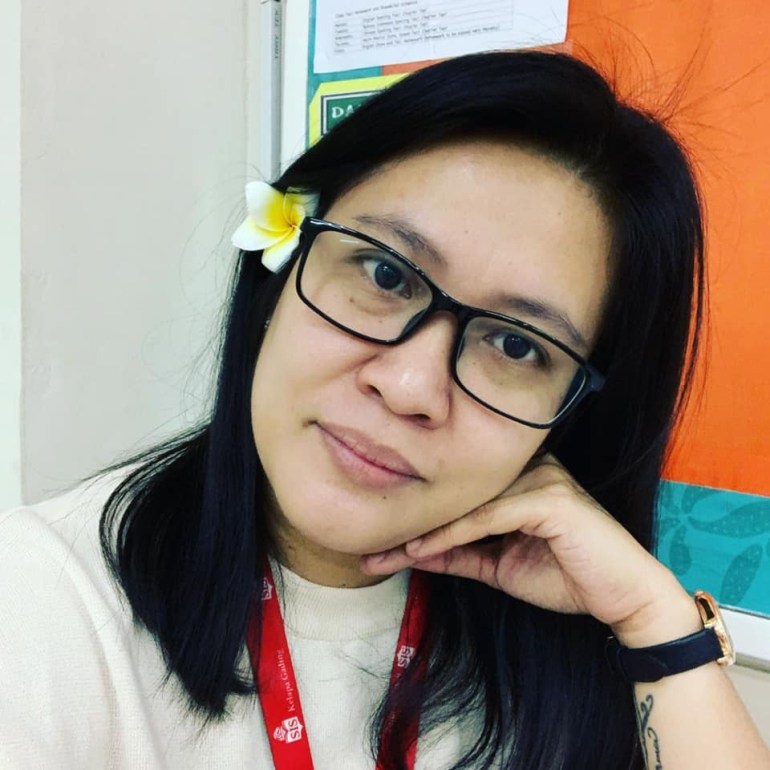
Aside from teaching English, mathematics, science and international issues she decided to adopt a more relaxed approach to make up for the lack of real-life interactions.
Atienza, who has been a teacher for 17 years, has set up one-on-one appointments with a maximum of three students every day for an informal chat to get to know them better and help them get used to online learning.
Before the start of each school day, she also encourages the children to have fun by playing online games, letting them dance or jump on the bed or shout greetings to their classmates and family members.
“When you see them smile and when I hear them answer the question and when they tell me stories, that’s my biggest takeaway,” she told Al Jazeera. “Learning starts from there.”
Anushka Daruka, 18
Anushka Daruka, a high school student at SIS Kelapa Gading, says her school workload has increased substantially because of the pandemic. She has started reviewing past topics for mock exams set to take place during the middle of this month.
“As for these mock exams, which will determine our final predicted scores for the university applications, I am worried given the pressure of preparing for them alongside meeting all the deadlines,” she told Al Jazeera.
“Even so, I continue to hope for the best given the constant support and guidance we receive from our teachers.”
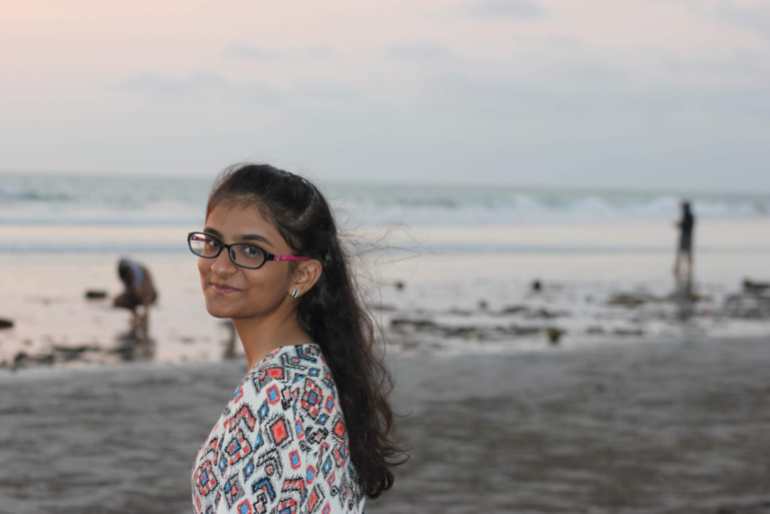
Daruka, who is studying for the International Baccalaureate and is originally from India, has also found it more difficult to progress with her coursework during the online learning sessions because she has not been able to properly conduct fieldwork research and interviews.
She wants to study business and computer science in the United States or Canada but is worried the absence of face-to-face classes “may undermine our chances to score well in the exams and as a result my place at universities I have applied to”.
Daruka is not only worried about her education, however. During the many months of online learning, she has also missed spending her free time at the library and hanging around school with her friends.
Muh Fadhilah Islamil Haqni, 18
As a senior high school student at SMA Negeri 4 Kendari, a public school in the provincial capital of Southeast Sulawesi, Muh Fadhilah Islamil Haqni sometimes did not understand the online mathematics lessons despite the teacher using virtual whiteboards.
But now, the 18-year-old says he would rather lessons remained online because it gives him more time to join research competitions to develop his hard and soft skills. Before the pandemic, he would spend his weekdays attending school and additional tuition classes from 6am until 7pm.
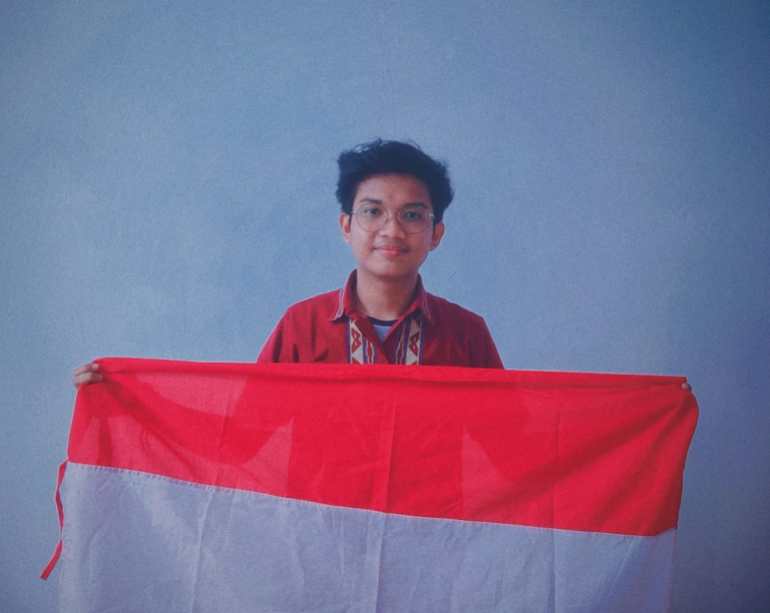
Late last year, he represented Indonesia in a research competition – by designing a chemistry board game for high school students – which was held virtually by a committee in Brazil.
“There is also more time at home, so [I] can try to explore other interests,” he told Al Jazeera.
Fahriza Marta Tanjung, 45

For Fahriza Marta Tanjung, last year was the hardest in his 15-year career as an electrical engineering teacher at SMK Negeri 1 Percut Sei Tuan, a public vocational school in Deli Serdang, North Sumatra province.
The pandemic forced him to suspend practical classes for his 30 students, which he says made it “difficult to achieve learning goals”.
“I think the problems are the same because I talked to my friends in Jakarta, it turned out not all students had access [to technology], even though [they live] in Jakarta,” he told Al Jazeera.
Tety Sulastry Lokollo, 55
Tety Sulastry Lokollo, who currently teaches chemistry at SMA Negeri 7 Jakarta, a public school in the Indonesian capital, has been a teacher since 1994. The pandemic has forced her to rethink her teaching strategies.
Concerned about her students’ access to technology, she decided not to set up online classrooms when physical schools in Jakarta were closed in March last year. Instead, she opted to deliver her lessons via seven WhatsApp class groups – each with between 34 and 36 second-grade senior high school students – sharing her presentation slides and explanations for the students to read.
During the classes, students are able to ask her questions in the group chat so she can explain the concepts to them. She also asks students to observe and record chemical processes by working on do-it-yourself experiments, such as making ice cream at home and sending the video clips to her.
Sometimes, she says, her students are so tired they fall asleep. She does not mind, providing they have done their homework. She makes sure they get regular feedback.
Lokollo admits she is afraid of resuming face-to-face lessons with all her students this year because of the pandemic, but she does not think her school will reopen anytime soon.
Nor does she think that online learning is failing Indonesia’s young people. She says the pandemic has forced them to innovate and thinks that this might even be of benefit to the students.
“Teachers are not the only source of learning,” Lokollo told Al Jazeera.
“In fact, I can think of this generation [who adopted] technology, what kind of future will they have? … We will be surprised, actually they have more abilities [than us].”
